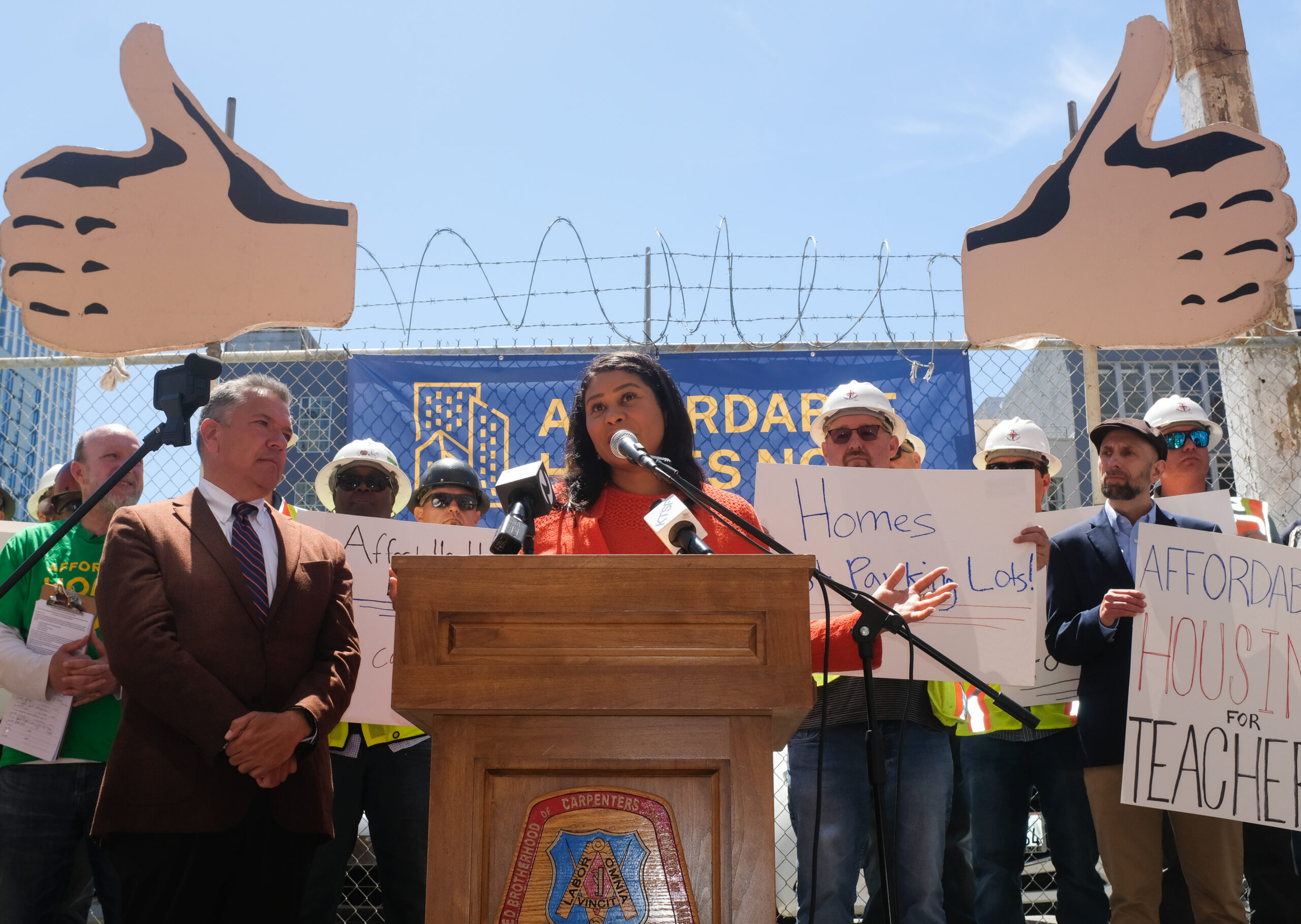In a series of late-night talks, Mayor London Breed’s office and a group of supervisors agreed on a citywide spending plan that appears to preserve many of the mayor’s initial priorities while adding millions in spending on housing and other initiatives.
Budget talks wrapped in the wee hours of Tuesday morning after several rounds of negotiations, and the resulting agreement includes about $88.5 million in cuts from the mayor’s original two-year spending proposal, among other changes, according to documents released on Tuesday. Both sides emerged relatively pleased with the deal, said City Hall sources. The spending plan still needs to be approved by the full board of supervisors in July.
“I think the mayor’s priorities are largely intact: The [police] academy classes are still there, downtown recovery funding almost entirely intact…no money from reserves,” said Jeff Cretan, Breed’s communications director.
According to budget documents, supervisors agreed to trim $57.2 million from the mayor’s budget proposal in the coming fiscal year, much of that through agreed-upon reductions to department spending. They also cut about $2 million from the police budget, reflecting overtime spending and other requests. Other cuts included a reduction in downtown ambassadors requested by the Office of Economic & Workforce Development, cuts to a division of Public Works that enforces street and sidewalk codes, and some attrition in the District Attorney’s office.
Budget chair and District 9 Supervisor Hillary Ronen called the process “easy” and profusely thanked colleagues in a late-night address before finalizing the budget committee’s changes.
The mayor’s original citywide budget proposal amounted to $14 billion in the next fiscal year, and included boosts for the Department of Public Health, police and other public safety agencies, as well as new spending on community ambassadors and other efforts to shore up the city’s struggling downtown.
Through an annual process known as “add-backs,” the Board of Supervisors fielded budget requests from nonprofits and other organizations that appeal directly to supervisors to support their projects. Those requests are winnowed down by the supervisors and “added back” into the budget to replace whatever cuts they proposed, though supervisors are not permitted to directly order departments to allocate funds to specific organizations. The final list of add-backs takes the form of a list that directs departments to spend a specified amount on a specific project, without listing any grantees of the funds.
This year’s list of add-back requests amounted to an unprecedented $1.3 billion over the next two years, much of it from a handful of umbrella coalitions representing various nonprofits: the AAPI Council, the Latino Task Force, and MegaBlack, among others. Some of those groups received funding associated with the Covid pandemic, which supported food distribution and other emergency measures, but that funding is set to dry up.
The Housing Stability Oversight Board, which advises the Board of Supervisors on the use of revenue from Proposition I, a tax on large real estate transactions passed in 2020, also requested $112 million to help establish “social housing,” a term that refers to mixed-income, government-run housing. Funds from Prop I have been the subject of squabbling between Breed and Supervisor Dean Preston, who authored the ballot measure.
Since the pandemic hit, the city has relied heavily on one-time federal stimulus and other funding to plug gaps in its budget resulting from drops in local tax revenues. A projected surplus in the city’s budget was gobbled up by wage and benefit increases for city workers, which are based on contract negotiations with the city’s unions and cost of living increases. Those increases amounted to 10% over the next two fiscal years.
One of the sticking points in negotiations was a cost of doing business increase for nonprofits that contract with the city, a source said; the final agreed-upon increase was 2.5%, which may be used for wage increases for workers or other uses. A group of workers for the Tenderloin Housing Clinic, a major operator of supportive housing, had called for wage increases for poorly-compensated case workers and other staff.
In the end, the mayor’s budget office agreed to a number of changes to department spending without much fanfare, and also agreed to fund some of the requests for social housing funds through certificate of participation funds, a form of debt financing. That includes funding for land acquisition, repair or existing single room occupancy buildings and other initiatives. An earlier proposal had sought to use the city’s fiscal reserves to fund the social housing projects.
Mike Ege contributed to this report.
